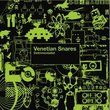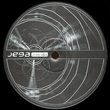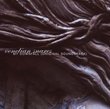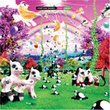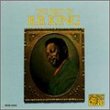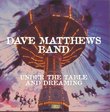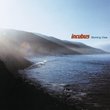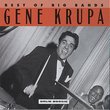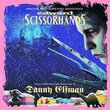| All Artists: Venetian Snares Title: Rossz Csillag Allat Members Wishing: 2 Total Copies: 0 Label: Planet Mu Release Date: 3/22/2005 Genres: Dance & Electronic, Special Interest, Pop Styles: Techno, Experimental Music, Dance Pop Number of Discs: 1 SwapaCD Credits: 1 Other Editions: 4 Adaptations of Rossz Csillag Alatt Szuletett UPC: 600116811127 |
Search - Venetian Snares :: Rossz Csillag Allat
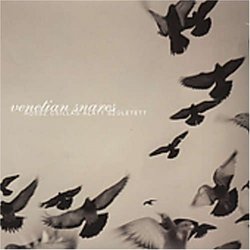 | Venetian Snares Rossz Csillag Allat Genres: Dance & Electronic, Special Interest, Pop
|
Larger Image |
CD DetailsSimilar CDs
Similarly Requested CDs
|
CD ReviewsThe best work from Venetian Snares yet somethingexcellent | Lincoln, NE United States | 11/28/2005 (5 out of 5 stars) "In the past couple years, Aaron Funk has spat out music at a prolific pace that can possibly only be succeeded by Merzbow or perhaps Scott Herren under his batch of different pseudonyms. I have listened to much of what Funk has released as Venetian Snares, and while I can appreciate what he creates, I am often left cold by his work. For each album that he's put out, there is always one or two tracks that slam my ass, then another handfull that are pretty good, but the remainder seems to just pound my brain into a peaceful submission that doesn't really care to process it all after awhile. In relative terms, Rossz Csillag Alatt Született took a little bit longer for Funk to complete, and after I'd read several places that it was easily his most melodic work yet, and that he learned to play a violin, and even some trumpet for the release, I started wondering just what tricks he had up his sleeve. As it turns out, this release is definitely at least a partial turning point for Funk as an artist, as it mixes his usual hyper-crisp beat programming with strings, horns, piano, and lots of other elements for his most musical and interesting release yet. After the opening track of "Sikertelensëg" rolls forty seconds of dark inprovised piano noodlings, "Szerencsetlen" starts off the album proper with quick bursts of string samples that flow and dash like a horror-movie soundtrack spliced together with a chase-scene before the sweet snare-rush blasts of the familiar amen break start hammering away. As the track progresses, even more strings pile onto the mix, and delicious string scampers raise the tension even more. "Ongyilkos Vasárnap" is a reworking of a Hungarian track that Billie Holiday in turn covered, and Funk samples Holiday and sprinkles in slow, churning rhythm and some sprinklings of rhodes piano for great effect. If you can believe it, there are tracks on the release that are completely beat-less (like the dark "Felbomlasztott Mentökocsi" and "Galamb Egyedül") and they don't feel at all out-of-place on the release. In fact, the tracks act as great breathers on a release that almost exclusively runs in the shadows. For all those wondering if the release is a complete change for Venetian Snares, rest assured that there are still plenty of mind-bending hyperactive beat workouts. "Második Galamb" opens with quick horn stabs and even some random spoken-word phrases but soon bursts into a frenetic, laser-blasting, horn & string nightmare. Likewise, "Kétsarku Mozgalom" opens with layers of overlapping strings before cranking up into a spastic drill-and-bass attack that rises and falls and goes every which way in the course of almost eight minutes but is never, never boring. If I have one complaint about the release, it's that Funk seems to use some of the same drum programming sounds (the amen break is serviced quite well in different variations) several times during the course of the album, but given the variety of the rest of the instrumentation on the release, it's something that's not worth quibbling about. This is now the Venetian Snares release in my collection that I will most assuredly reach for nearly every time I wish to listen to something by Venetian Snares from now on. In other words, even if you haven't enjoyed his previous work, this one might do it for you. (from almost cool music reviews)" One of the greatest albums I have ever heard. Chris 'raging bill' Burton | either Kent or Manchester, United Kingdom | 04/30/2006 (5 out of 5 stars) "Quite simply, you've never heard anything like this even if you're already familiar with Venetian Snares. On this album, Aaron Funk combines his usual frenetic, complex and seemingly random (though often carefully and meticulously constructed) drum beats with 20th Century Hungarian orchestral music to create some of the most incredible, epic and powerful pieces of music. Even if you're not a fan of either orchestral music (specifically 20th Century modern classical, not Classical in the Mozart sense) or IDM/Breakcore music you owe to yourself to listen to this album if you consider yourself an open minded music fan with an eclectic taste. At times as loud and abrasive as much of his other work, at other times beautiful and introspective, Rossz Csillag Alatt Szuletett is one of the greatest pieces of music I've ever heard. As is often the case with albums I really love, I can't think of very much to say without resorting to cliches and repeating myself, so I'll leave it at that. Get this album NOW." Flawed DiFranco | Earths | 07/26/2007 (3 out of 5 stars) "Venetian Snares (Aaron Funk) is one of the most cohesive, focused musicians in the music industry, popular or not. Every album he puts out could plausibly be considered a concept album of sorts; not necessarily by an underlying theme or story, but by a general sound. Rossz Csillag Alatt Szuletett is no different. Every song is centered upon sampled classical music (some of which was apparently sampled from Aaron himself), with the occasional blast of his trademark breakbeats. Therein lies the difference between this and previous Venetian Snares records; 5 of the 11 songs on RCAS have no percussion whatsoever. This wouldn't be a problem if the stringed selections held up by themselves, but they don't. The level of monotony in his beatless productions is far too high to warrant such a large chunk of the album. Even some of the songs with beats, such as Szamar Madar, open with stark passages that don't seem to go anywhere. But, these passages lead to some of the most satisfying music Funk has ever produced, however fleeting those moments may be.
Fortunately, the album is saved from being a write-off by "Masodik Galamb". Beginning with an appropriate string swell, followed by a curious narration about pigeons, the bulk of the song mixes a variety of real-world instruments with some of the best slice-n-dice drum programming the man has ever done. Creepy synthesized elements fade in and out, the drums get louder and louder, until finally spilling into full-on gabbercore to end the song, all while surrounded by beautiful melodies following the percussion's lead. A fantastic, nightmarish ride, "Masodik" is one of the finest moments of Aaron's extensive catalog. Too bad the rest of the album is so focused on pretty-but-dull classical noodlings." |

 Track Listings (11) - Disc #1
Track Listings (11) - Disc #1